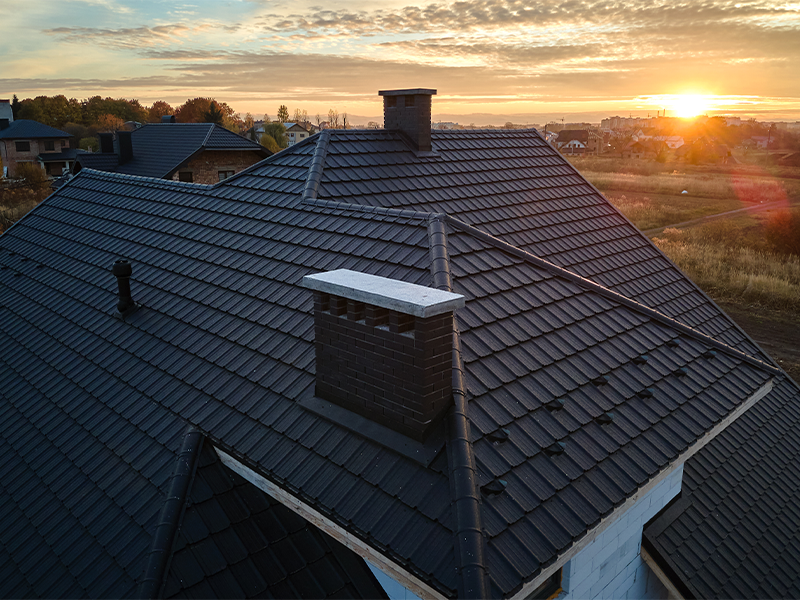
When it comes to choosing the right roofing material, homeowners have a host of factors to consider. From affordability to aesthetics and very importantly, durability. Differences in climate, design, and material affect the longevity of a roof, and an understanding of the characteristics of various roof types is needed for homeowners to make an informed decision—one that guarantees that their investment will stand the test of time.
Factors That Influence Roof Longevity
Several factors affect how long a roof lasts, starting with the quality of materials. Durable materials like slate, metal, and certain composite shingles are known for their long-term resistance to wear.
The climate also determines how long a roof will last. Harsh conditions such as hail, heavy snow, or strong winds can cause roofs to wear out faster. Roofs designed to handle local weather tend to last longer than those that aren’t suited for the region’s climate.
Regular maintenance is essential for extending a roof’s life. Inspections and timely repairs help prevent small problems from turning into major damage. Homeowners who stay on top of maintenance often find that their roofs last longer than expected.
Lastly, the skill of the roofing professionals cannot be overlooked. A roof installed with care and in line with industry standards will generally last longer than one put up without proper attention to detail.
Roof Types and Their Lifespans
The lifespan of a roof depends largely on its material. Slate roofs are known for their exceptional durability, often lasting 100 years or more. Made from natural stone, slate is resistant to fire, rot, and pests, making it one of the most long-lasting roofing options.
Metal roofs, using materials like steel, aluminum, or copper, also have a long lifespan of 40 to 70 years. They hold up well in extreme weather, are fireproof, and reflect heat, which helps keep attic temperatures down.
Concrete tiles offer another durable option, typically lasting 50 to 100 years. They resist wind, hail, and fire, but their weight requires a sturdy building structure for support. Despite this, their toughness ensures a long service life.
Asphalt shingles, though more affordable, have a shorter lifespan of about 15 to 30 years. Good installation and regular upkeep can help extend their life, but they generally require more frequent maintenance than other roofing materials.
Additional Tips for Extending Roof Lifespan
To extend the lifespan of your roof, regular inspections are non-negotiable. Professionals can spot and fix minor issues before they become major problems, helping to keep the roof in good shape.
Cleaning gutters frequently is also important to prevent blockages that can cause water to accumulate on the roof, leading to potential damage. Ensuring proper water flow away from the roof helps maintain its structural integrity.
Additionally, trimming overhanging tree limbs minimizes the risk of damage from falling branches and reduces debris accumulation. Less debris means less chance for moisture to get trapped and cause deterioration.
Meanwhile, proper ventilation and insulation in the attic help maintain a stable temperature, protecting roofing materials from extreme heat or cold. A well-regulated attic environment greatly contributes to the roof’s overall longevity.
Contact Adept Construction Today!
At Adept Construction, we specialize in guiding homeowners through the selection of the best roofing materials for their unique needs, ensuring long-lasting protection and peace of mind. Whether you’re interested in the timeless appeal of slate, the efficiency of metal, or the rugged strength of concrete tiles, our expert team is here to provide personalized advice and top-quality installation. Contact us today to schedule a consultation and explore the ideal roofing solution for your home.




